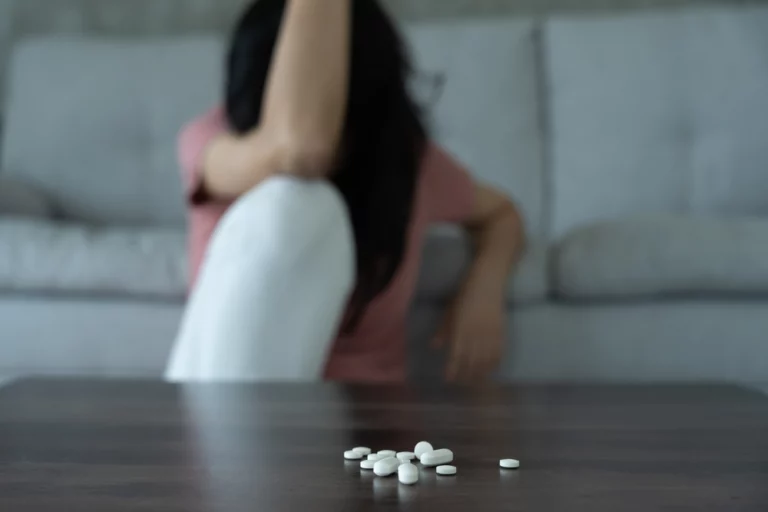Millions of Americans struggle with chronic pain – ongoing pain that lasts more than six months. Chronic pain may result from illness or an injury, but it can continue after the illness has passed or the injury has healed. It can also occur in the absence of any apparent injury. Chronic pain may be linked to arthritis, back problems, nerve damage, cancer, or fibromyalgia.
Despite the prevalence of long-term pain, scientists have not yet found an effective, non-addictive treatment for some conditions. Even with all the dangers associated with opioids, they have proven to be effective for people living with painful conditions. As a result, doctors continue to prescribe them widely despite the high levels of misuse and fatal overdose across the country.
At the same time, cannabis has been presented as a possible alternative by some researchers and the use of medicinal marijuana is more accepted. Some people who take prescription opioids think they will get even more relief if they use marijuana as well. Some are able to lower their opioid dosages and, therefore, reduce the likelihood of developing an opioid addiction. However, research suggests that this approach can be dangerous even though patients have good intentions. You should contact our Asheville opioid rehab center if you have any further inquiries about proper usage.
What Happens When You Mix Marijuana and Opioids
One study found that using both cannabis and opioids may be a counterproductive strategy since the combination can cause anxiety, depression, substance abuse, and addiction. The study by the University of Houston tracked over 400 opioid users who were dealing with mild to moderate pain for a minimum of three months.
Those who used both opioids and cannabis didn’t experience any more relief than those who only used opioids. However, they reported higher levels of anxiety and depression. Participants who used both drugs were also more likely to use other substances like cocaine, alcohol, tranquilizers, and tobacco.
Meanwhile, a study by Harvard Medical School and Cedar-Sinai Medical Center in Los Angeles supported these conclusions. Their analysis of more than 500 patients with musculoskeletal injuries revealed that using marijuana during recovery was linked to an increase in the number of opioids used and an increase in the duration of use.
The problems likely stem from the fact that both marijuana and opioids have depressant effects. Using the two drugs is dangerous since each amplifies the effect of the other. The combination can slow down brain function, lower blood pressure, and cause extreme fatigue. Blurred vision, hallucinations, and confusion are also common. Combining drugs that depress the central nervous system can even lead to breathing problems and coma.
The Dangers of Polydrug Abuse
Polydrug abuse is a term used to describe the use or abuse of two or more drugs simultaneously. Using more than one substance is often riskier than using just one, even if one or both drugs are prescribed. People who mix marijuana and prescribed opioids or drink alcohol after taking their medication don’t realize this is polydrug abuse.
Even mixing over-the-counter drugs that contain ibuprofen or acetaminophen with prescription painkillers can be dangerous. Marijuana and opiates in combination can make mental health issues worse while mental health problems can exacerbate drug abuse.
Fortunately, there is help available for people who find themselves developing unhealthy drug use habits. For those who are addicted, an intensive treatment program is usually best.
Detox is the first step in the recovery process, but it is not effective on its own. Instead, it must be followed by a comprehensive addiction treatment that includes therapy. Cognitive-behavioral therapy is often used to help individuals change their thought patterns and behaviors including those relating to substance abuse.
Treatment may take the form of intensive outpatient treatment, partial hospitalization, or residential treatment depending on the individual’s specific situation. One-size-fits-all approaches won’t be effective. It is important to identify the issues that led to substance abuse and address them. Mental health issues also need to be identified and addressed. As an individual progresses, their treatment plans may need to be altered.
Reach Out to Asheville Recovery Center for Help Today
If you’re using multiple drugs to get relief from pain or you’re using opioids in a way other than that prescribed by your doctor, you need to seek help. The treatment professionals at Asheville Recovery Center in North Carolina can help you to find ways to lead a healthier life. We offer a range of treatment programs that are customized to each individual’s needs. Call us today to schedule a consultation with a member of our team or ask any questions you have. We’re here to help you.








